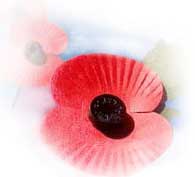

More orthodox Allied forces under General Allenby made another northward push in September 1918, breaking through at Jaffa and in the Jordan Valley. Here the 1st and 2nd Battalions of the British West Indies Regiment - having finally overcome the British Army's reluctance to use them in the front line - killed around 200 Turks in a ferocious bayonet assault (See Winston Millington (Barbados/Trinidad)). The Allies swept north, taking Damascus and Beirut in early October. By the end of the month the Desert Mounted Corps had taken Alleppo, and by the time the Turks signed an armistice on 30 October they had lost all of Palestine, Syria and Arabia. In the last six weeks of the campaign the Allies had advanced more than 350 miles, taking 76,000 prisoners, at a cost of 853 killed and nearly 4,500 wounded.
The Suez Canal, Britain's short-cut route between India and Europe, was a vital lifeline. The canal and the Abadan oil pipline had to be guarded at all costs.
There was some delay in reinforcing the Canal's defences to a suitable degree, but late in 1914 30,000 Indian troops - mainly of the 10th and 11th Indian Divisions - were hurried to Egypt and deployed along the Canal in time to meet the Turkish offensive of January 1915. The Turks intended to seize the Suez Canal and drive on towards Cairo.